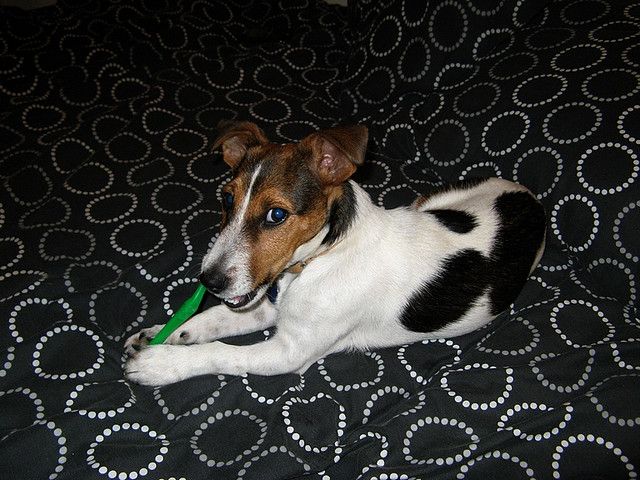Welcome to our weekly 'Ask a Vet from the SF SPCA' feature on 7x7.com. They've enlisted their Co-President, Dr. Jennifer Scarlett, to answer your questions every week. Got a question for Dr. Scarlett? Ask away in the comments!
Q : My lovely doodle has horrible breath! What is the best way to brush/clean his teeth? Also, what are the dangers putting a pup under to get a full cleaning? And what other options do we have?
A: Well, let’s dig a little deeper before we talk about a dental. Like humans, dogs can have bad breath due to reasons besides dental disease. Have your veterinarian perform a good oral exam and if there are no significant signs of dental disease then it may be that you need to brush your dog’s teeth on a regular basis. If you think of it, your breath would be pretty knock out if you didn’t brush between visiting your dentist. If your pup has had upset stomach or a lack of appetite, your veterinarian may want to look for esophageal or gastritis as the cause of the odor. If your dog has dental disease and needs a dental cleaning then it must be done professionally—you’ll find a myriad of cheap dental options out there that don’t use anesthesia, but keep in mind, you get what you pay for…these are often unlicensed, unqualified people poking around in your dog’s mouth. It is currently the most common form of unlicensed veterinary medicine. You wouldn’t let just any unlicensed person clean you or your kid’s teeth would you?
And yes, knocking the huge hunks of tartar looks good but there is no way any self-respecting dog or cat will let someone use an ultrasonic cleaner, or inspect the gums (where one needs to get the most), while awake. There is a reason anesthesia is needed—to perform a dental cleaning correctly, you need to measure gum pockets, take radiographs etc. Please don’t let the price deter you from addressing your dog’s odiferous breath – something is going on there, whether it is dental or gastric. Dental health in animals, like in humans, is critical to health of the body overall. Plaque build-up and periodontal disease are considered risk factors in the development of heart, kidney, liver and respiratory diseases. Once you’ve had your dog’s teeth cleaned properly and thoroughly, you can maintain his gleaming dents and fresh breath with daily at-home brushings.
While we can’t answer all of the questions here, please feel free to ask us during our Friday Twitter Ask the Vet Chat. If your animal’s problem is of an immediate nature, please call your vet or you can reach the SF SPCA at 415-554-3030 to make an appointment.
Related Articles
